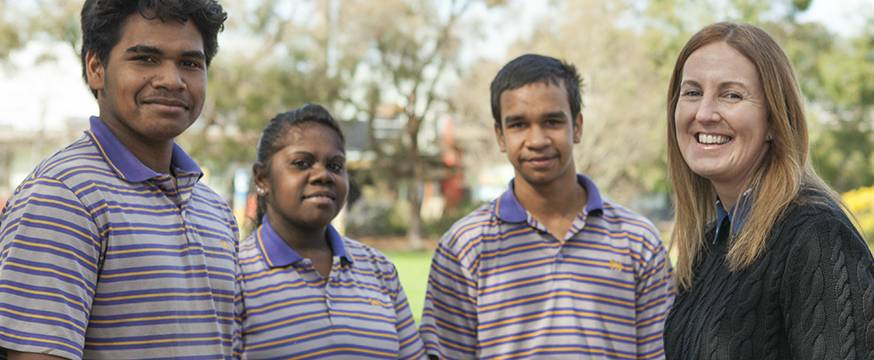
Defining success in remote schools
Research 16 Oct 2014 5 minute readLocal and other stakeholders in remote schools hold quite different views about student aspirations, expectations of schooling experiences, and what educational success looks like, as Gina Milgate explains.
Defining success in remote schools
Schools in very remote Australia, where many students are of Aboriginal or Torres Strait Islander descent, are often characterised as failing or falling behind compared to the rest of the nation. But ‘failure’ and ‘falling behind’, ‘success’ and ‘getting ahead’, inevitably rest on the assumptions and values of those making such judgement that are not necessarily shared by Aboriginal and Torres Strait Islander people. So what do Aboriginal and Torres Strait Islander students and families themselves say about their vision and expectations of their future, how they see success and how they view their experiences of school?
In order to investigate the nature of educational experiences, aspirations and success in very remote schools, the Cooperative Research Centre for Remote Economic Participation commissioned the Australian Council for Educational Research (ACER) and the Dare to Lead Project of Principals Australia Institute (PAI) to analyse the relevant but de-identified data collected between 2009 and 2013 through the Dare to Lead Collegial Snapshots.
As previously reported in Research Developments, each Collegial Snapshot collects point-in-time evidence-based and anecdotal data from the entire school community in relation to Aboriginal and Torres Strait Islander education.
ACER and the Dare to Lead Project analysed the perspectives of 672 school leaders, Aboriginal Assistants, classroom teachers, students, parents and carers, in 31 very remote schools that have an Aboriginal or Torres Strait Islander enrolment rate of 80 per cent or higher.
The analysis sought to discover whether there is a difference between what local stakeholders say compared with those who come in to the school from elsewhere on three key issues: definitions of educational success, expectations of the school experience and young people’s future orientation or aspirations.
The key finding of this analysis, essentially, is that what makes a successful remote school depends to a large extent on who is speaking.
Educational success
Significant differences between the perceptions of locals and non-locals on the definitions of success were found. Behaviour and behaviour management (in this context, referring to students’ engagement, related school policies, the way the school deals with incidents and issues, etc) was the most common theme raised by locals and the second-most common theme raised by non-locals, while attendance was the most common theme for non-locals and the fourth-highest occurring theme for locals. Culture and language were dominant themes, ranking equal second for locals and fourth and fifth respectively for non-locals. Health and wellbeing issues were the third most common theme raised by non-locals, but ranked sixth for locals.
Of note was the limited number of comments about teachers, teaching or academic outcomes. English language competence, teacher continuity, extending kids, and teacher/parent relationships made up less than one-eighth of all comments.
What makes a successful remote school depends to a large extent on who is speaking.
School experiences
In terms of expectations of the school experience, academic outcomes were the most frequently discussed theme, but almost three-quarters of the responses came from non-locals, as did comments about choice and options. Students themselves were most concerned about the school experience being enjoyable. More than three-quarters of comments on the theme of language learning in schools came from locals. Complementing this theme are another 53 responses related to learning culture.
Parent and community engagement themes together made up about one in six of all responses. About one in seven of all responses related to boarding transitions or further education and training opportunities. Very few responses related to learning English and western culture.
Future orientation
Less than three per cent of all comments related to future orientation or aspirations. Local stakeholders were more likely than non-locals to raise the issue of jobs and careers, and discuss concerns about young people moving away from their home community. Responses about going to boarding schools were given equal weight by locals and non-locals, and suggested both positive and negative experiences.
The analysis shows that locals and non-locals hold quite different views about what they think student aspirations are and should be, what they think success looks like, and what their expectations of schooling experiences should be. It also shows that non-locals ought not assume that their views of the world are shared by their students or the parents/carers they engage with.
The findings suggest an important role for local educators in translating the codes of power from the school to the community and vice versa. For non-locals, the importance of listening to and working with the community and families so they can show the way forward for young people is paramount. Further, there is an opportunity to take steps to engage in a bigger conversation with all stakeholders about what remote schools should be about.
Further information:
This article is based on research that will be presented at The Joint Conference between Australian Association for Research in Education and New Zealand Association for Research in Education in December 2014.